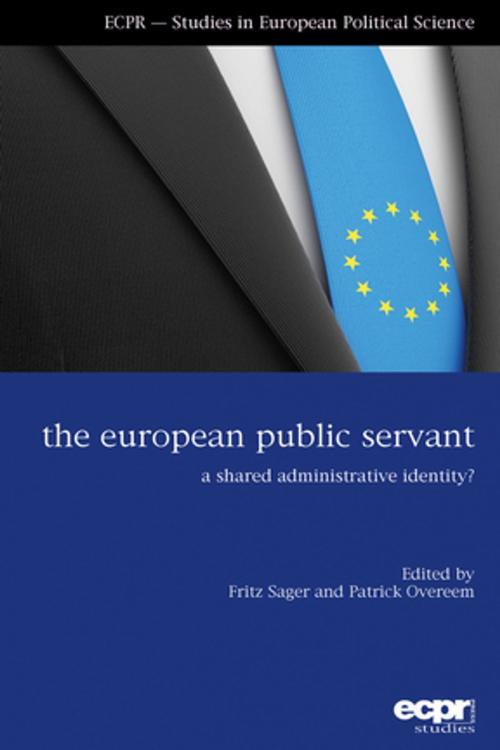The European Public Servant
A Shared Administrative Identity?
Nonfiction, Social & Cultural Studies, Political Science, Government, Public Affairs & Administration, Politics, Civil Rights| Author: | Fritz Sager, Patrick Overeem | ISBN: | 9781910259542 |
| Publisher: | Rowman & Littlefield International | Publication: | January 1, 2016 |
| Imprint: | ECPR Press | Language: | English |
| Author: | Fritz Sager, Patrick Overeem |
| ISBN: | 9781910259542 |
| Publisher: | Rowman & Littlefield International |
| Publication: | January 1, 2016 |
| Imprint: | ECPR Press |
| Language: | English |
Sager & Overeem's timely analysis constitutes an original effort to integrate history of ideas and cutting-edge survey research. It presents the subject's ideational foundations as well as its modern manifestation in European administrative space. 'Sager & Overeem's excellent collection is the first serious exploration of the historical and comparative development of the public servant in Europe. The result is a superb set of essays that are historically insightful and of contemporary relevance. Scholars and practitioners will benefit from learning of the historical roots of the often competing concepts of public service and democratic legitimacy that still inform so much of contemporary practice.' Mark Bevir, University of California, Berkeley 'From the ashes of the second world war, the European Union emerged as, ultimately, a moral experiment. But can today's EU of 28 nations and 400 million people from immensely diverse cultures transcend the traditional nation-state and all its historic limitations? Many factors will decide the answer. Among the most critical is the EU's capability to forge its own public administration expertise, corporate identity, and ethical commitment to carry out effectively its policy agendas. This book attempts to examine that fundamental yet often neglected problem confronting Europe's future. While no simple or clear-cut conclusions can be found in these pages, the book's contents open intriguingly diverse perspectives and raise key research questions on a seminal public issue that deserves priority attention for those who wish the EU experiment success.' Richard Stillman, University of Colorado 'This volume puts the European civil servant centre stage. It offers disciplined, insightful comparisons across time and space and reveals converging trends towards a shared European administrative identity. The lucid chapters are coherently assembled and fill a gap in the literature. An important contribution to the debate about the European administrative space.' Michael W Bauer, Deutsche Universität fur Verwaltungswissenschaften, Speyer
Sager & Overeem's timely analysis constitutes an original effort to integrate history of ideas and cutting-edge survey research. It presents the subject's ideational foundations as well as its modern manifestation in European administrative space. 'Sager & Overeem's excellent collection is the first serious exploration of the historical and comparative development of the public servant in Europe. The result is a superb set of essays that are historically insightful and of contemporary relevance. Scholars and practitioners will benefit from learning of the historical roots of the often competing concepts of public service and democratic legitimacy that still inform so much of contemporary practice.' Mark Bevir, University of California, Berkeley 'From the ashes of the second world war, the European Union emerged as, ultimately, a moral experiment. But can today's EU of 28 nations and 400 million people from immensely diverse cultures transcend the traditional nation-state and all its historic limitations? Many factors will decide the answer. Among the most critical is the EU's capability to forge its own public administration expertise, corporate identity, and ethical commitment to carry out effectively its policy agendas. This book attempts to examine that fundamental yet often neglected problem confronting Europe's future. While no simple or clear-cut conclusions can be found in these pages, the book's contents open intriguingly diverse perspectives and raise key research questions on a seminal public issue that deserves priority attention for those who wish the EU experiment success.' Richard Stillman, University of Colorado 'This volume puts the European civil servant centre stage. It offers disciplined, insightful comparisons across time and space and reveals converging trends towards a shared European administrative identity. The lucid chapters are coherently assembled and fill a gap in the literature. An important contribution to the debate about the European administrative space.' Michael W Bauer, Deutsche Universität fur Verwaltungswissenschaften, Speyer















